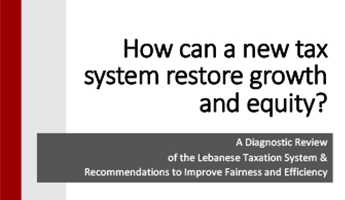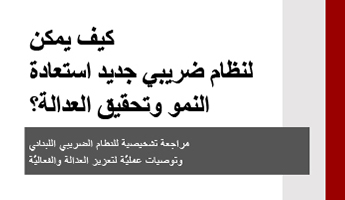Since October 2019, Lebanon has been witnessing a series of unprecedented crises that drained its vital resources and led to the greatest economic contraction of the nation's history. The devaluation of the Lira has devastated lives and impoverished millions. Inequality has remained at outrageous levels for years. Even before the crisis, the richest 10 percent received five times more income than the bottom 50%. This was exacerbated by a tax system that rewards the banking sector, encourages tax evasion, and concentrates wealth in the hands of the few. At the same time, the population is subject to regressive taxes that hit the poorest.
In this context, the Lebanese government is called to re-think its taxation scheme, not only as a mean to replenish needed funds for recovery, but also as a mean to support growth while helping the country maintain fiscal sustainability and reduce inequalities.
As part of its collaboration with Financially Wise (FIWI), the Institute of Finance Basil Fuleihan (IOF) contributed to a research study focused on evaluating the gaps and challenges in Lebanon’s current taxation system. The research assessed the system against criteria of fairness and efficiency and aimed to provide actionable recommendations and corrective measures. These insights are intended to support informed, evidence-based tax reform policies crucial for Lebanon’s recovery.
The project concluded with a diagnostic review of the Lebanese Taxation system, and a series of dialogue sessions engaging key stakeholders providing action-oriented recommendations and corrective measures that, once applied, can render the tax system more efficient and fairer.
The results were presented and discussed in a forum organized on September 26, 2023 that was preceeded by a briefing to the to the economic press.













